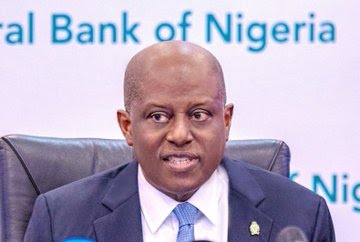
14 Banks Have Met CBN’s New Capital Requirement – Olayemi Cardoso
- Education
- 24.09.2025
- No Comment
- 40
14 Banks Have Met CBN’s New Capital Requirement – Olayemi Cardoso
Governor of the Central Bank of Nigeria (CBN), Olayemi Cardoso, confirms that 14 banks have successfully complied with Nigeria’s new regulatory capital requirements. This article explores the recapitalisation exercise, its impact, and the progress of Nigeria’s banking sector.
The Nigerian financial sector is undergoing a significant transformation following the Central Bank of Nigeria’s (CBN) new capital requirement policy. As the economy expands and regulatory standards evolve, the recapitalisation exercise has become a key milestone for banks operating within Nigeria.
Recently, CBN Governor Olayemi Cardoso revealed that 14 banks have already met the new capital thresholds, reflecting growing stability and resilience in the country’s banking system. This article examines the details of the announcement, its implications for the industry, and the ongoing efforts by banks to comply.
On March 28, 2024, the Central Bank of Nigeria raised the minimum capital requirement for commercial banks with international licenses to N500 billion. This marked one of the most ambitious recapitalisation policies in recent Nigerian history, aimed at strengthening the financial sector and aligning it with global standards.
The new capital requirement applies to banks based on their license category—international, national, and regional. According to the CBN, the policy was introduced to ensure that Nigerian banks have sufficient capital to support economic growth, withstand shocks, and remain competitive in a globalized financial market.
Since the announcement, banks have embarked on various capital-raising initiatives, including share offers, bond issuances, rights issues, and mergers, to meet the new threshold. The exercise is expected to be completed before the deadline set by the apex bank.

Cardoso’s Update: 14 Banks Have Met the New Capital Threshold
At a press briefing in Abuja following the Monetary Policy Committee (MPC) meeting, CBN Governor Olayemi Cardoso shared an update on the progress of the recapitalisation exercise.
“On the financial sector, the MPC noted the continued resilience of the banking system, with most financial soundness indicators remaining within projected benchmarks. Members also acknowledge the significant progress in the ongoing bank recapitalisation exercise, as 14 banks have fully met the new capital requirement,” Cardoso stated.
This marks a major leap from July 22, 2024, when the CBN announced that only eight banks had fully met the recapitalisation requirements. The increase to 14 banks in just a few months reflects the sector’s strong response to the policy.
The Governor further urged banks to continue implementing policies and initiatives that will ensure the successful completion of the ongoing recapitalisation exercise, emphasizing the need for a stable and well-capitalised banking system.
In addition to the recapitalisation update, Cardoso announced the successful termination of forbearance measures and waivers on civil obligors. These measures had been introduced as temporary reliefs during previous economic challenges.
According to the Governor, removing these measures has enhanced transparency, risk management, and long-term financial stability within the banking sector. He reassured stakeholders that the removal was transitory and did not pose any risk to the soundness or stability of the industry.
This move signals the CBN’s commitment to stricter regulatory oversight and improved accountability in the Nigerian banking landscape.
The ongoing recapitalisation policy is designed to address several key challenges in Nigeria’s financial sector. These include:
- Strengthening Banks’ Balance Sheets: By increasing their capital base, banks will be better positioned to absorb shocks from economic downturns, currency volatility, or global market fluctuations.
- Enhancing Credit Availability: Well-capitalised banks can lend more to the real economy, supporting infrastructure projects, small and medium enterprises (SMEs), and industrial development.
- Improving International Confidence: Stronger capital positions will make Nigerian banks more attractive to foreign investors and global financial partners.
- Supporting Economic Growth: A robust banking system is essential for achieving Nigeria’s economic diversification and long-term development goals.
By meeting the new requirements, banks are signaling their ability to remain competitive in the evolving financial landscape while ensuring that customer deposits and investments remain secure.
Banks’ Strategies to Meet the Capital Requirement
Since the policy’s announcement, banks have adopted various strategies to meet the N500 billion minimum capital threshold. These include:
- Public Offers and Rights Issues: Many banks have raised fresh equity from shareholders to strengthen their capital base.
- Bond Issuances: Some banks have issued long-term bonds to attract institutional investors.
- Mergers and Acquisitions: Banks with smaller capital bases are exploring mergers to combine resources and meet the CBN’s requirement.
- Asset Revaluation: Certain banks have revalued their assets to reflect higher capital adequacy ratios.
These strategies underscore the sector’s adaptability and determination to comply with regulatory standards without compromising operational efficiency.
The recapitalisation update came as part of the Monetary Policy Committee (MPC) meeting, where key economic indicators and policy directions were discussed. The CBN has been focused on stabilising inflation, strengthening the naira, and ensuring financial stability.
By highlighting the progress of the recapitalisation exercise, Cardoso reassured investors, depositors, and the international community of the continued resilience of Nigeria’s banking system.
With 14 banks already meeting the new capital requirement, the focus now shifts to the remaining institutions. Analysts expect more banks to announce capital-raising initiatives in the coming months as the deadline approaches.
Some potential outcomes of the recapitalisation exercise include:
- Stronger Industry Players: The policy may lead to fewer but stronger banks capable of financing large-scale projects.
- Increased Competition: Well-capitalised banks may compete more aggressively for market share, benefiting consumers with better services.
- Improved Corporate Governance: Higher capital requirements often come with stricter oversight, leading to better management practices.
Ultimately, the recapitalisation drive is expected to transform Nigeria’s banking sector into a more stable, transparent, and globally competitive system.
The confirmation by CBN Governor Olayemi Cardoso that 14 banks have met the new capital requirement marks a major milestone in Nigeria’s banking reform agenda. It reflects the sector’s resilience, the success of regulatory initiatives, and the growing stability of the financial system.
As more banks work to meet the recapitalisation target, stakeholders—including investors, depositors, and the government—can expect a stronger and more reliable banking environment. The policy may also boost confidence in Nigeria’s financial markets and attract greater foreign investment.





